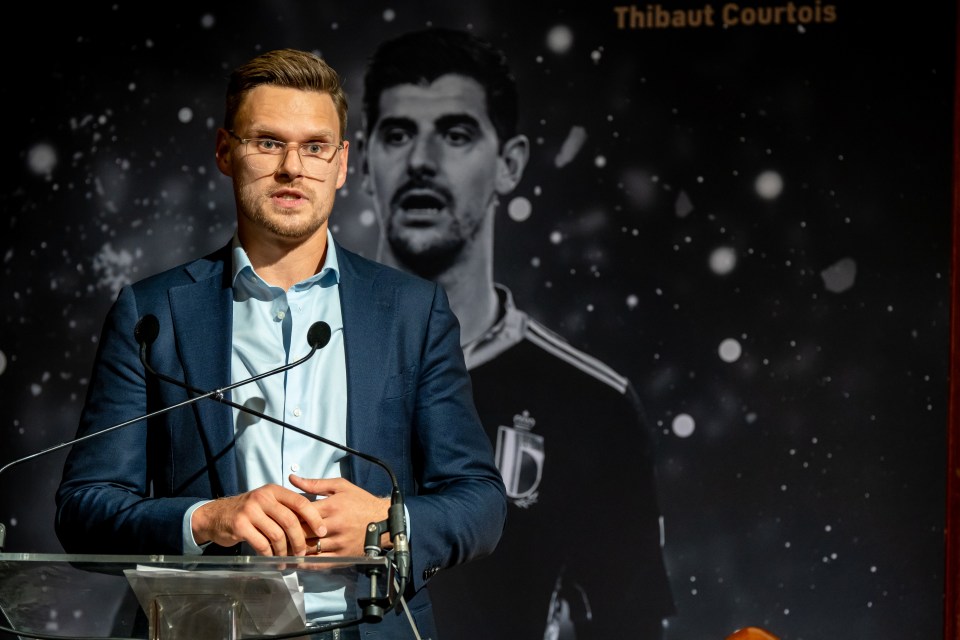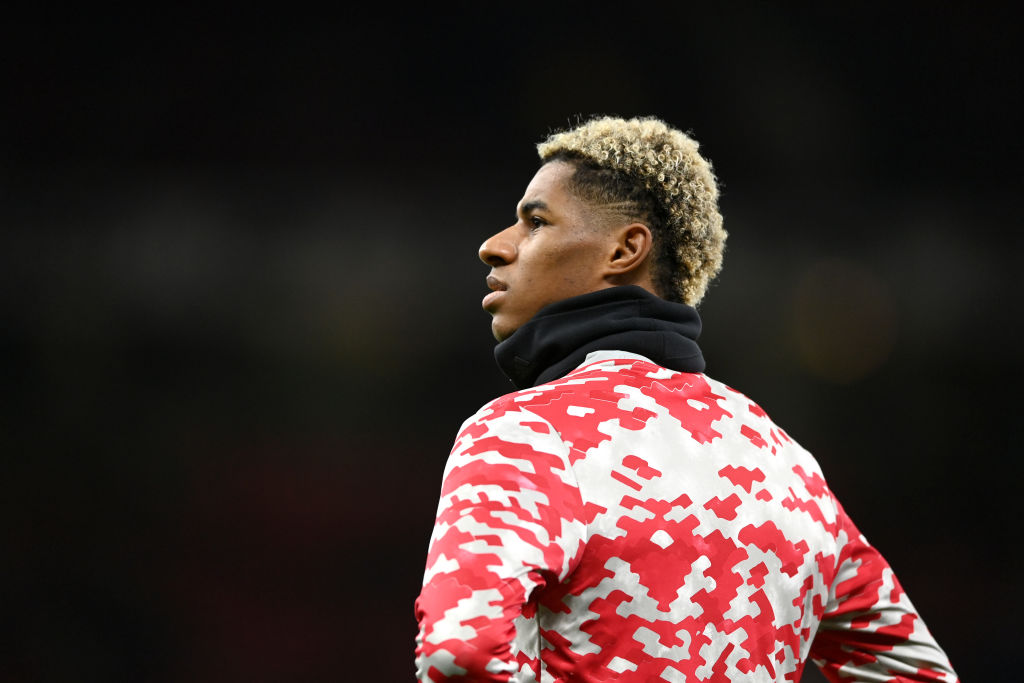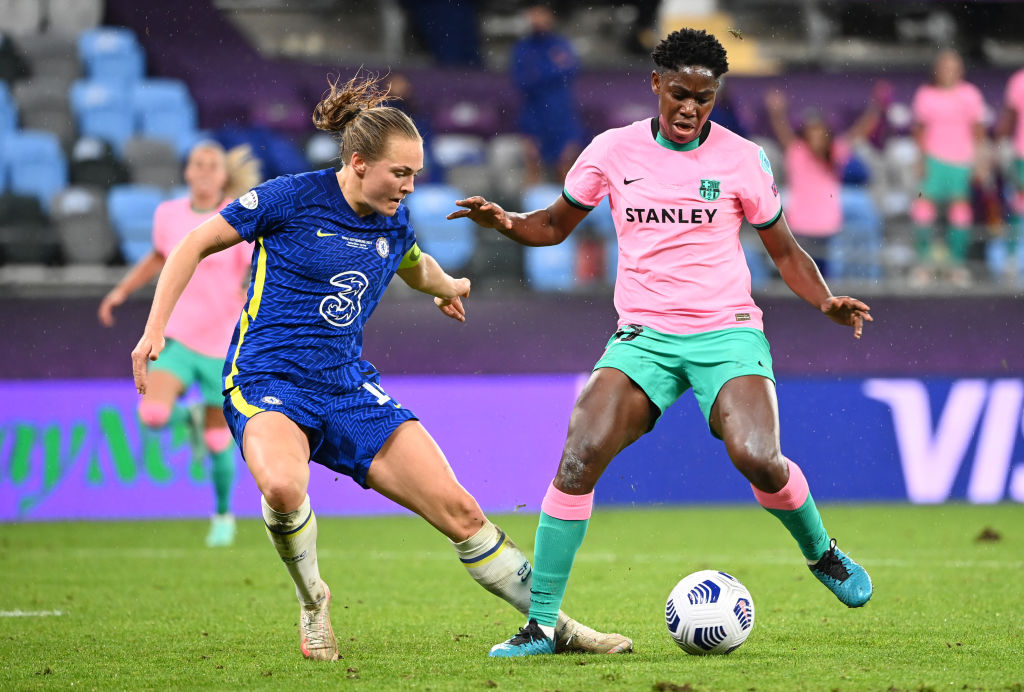Fifpro boss Jonas Baer-Hoffmann on player power, biennial World Cups, Super League and Qatar

There is a common thread that connects the two biggest football stories of the last 12 months, the failed European Super League breakaway and debate over biennial World Cups.
It can also be seen in concerns about player welfare, disagreements over economic models and what global players’ union Fifpro says is a tidal wave of abuse claims headed for the sport.
Football is broken, or at least its governance is, and looks likely to remain mired in a series of bitter stalemates until its decision making processes are reformed.
“I think football is at the moment in a period when everyone is realising that the way that things have been done is leading us down a pretty negative track,” Fifpro general secretary Jonas Baer-Hoffmann tells City A.M.
One of the downfalls of the Super League project and currently holding back the controversial proposals for biennial World Cups is a lack of “democratic buy-in” from all stakeholders, not least the more than 65,000 footballers who are members of the union.
“If you don’t have that, the decisions that are taken are being resisted from every corner because they don’t have the support from clubs, leagues, players etc,” says Baer-Hoffmann. “How do you create that buy-in? You need to bring people into the process.”
Although Fifpro has talks with world governing body Fifa and its European counterpart Uefa, with whom it is engaged in a tug of war over the game’s future, footballers do not have enough influence on decisions on an international level, he says.
But Baer-Hoffmann insists he is “very optimistic” that the industry will have to modernise, however, in part thanks to a generation of stars, such as England forward Marcus Rashford, who command huge audiences and are prepared to speak out.
“The real value-based leadership in our sport has often come from individual players – Rashford is the perfect example of that,” he adds.
“And that is a force that ultimately can’t be denied because of the platforms and understanding that the players have of who they are and want to be.
“The players share very common views. Once you bring them together and confront the other institutions with it, it is very powerful.”
Fifpro members reject biennial World Cup plan
Fifpro hopes to make it clear to Fifa that footballers are united in their opposition to biennial World Cups with the publication of a survey of its members today.
“The vast majority of them are in favour of maintaining the current rhythm,” says Baer-Hoffmann.
“There are various reasons – from the [physical] load to them being fathers and mothers of children and husbands and wives of spouses – but there is also an understanding that there’s a certain value in the scarcity of the World Cup.
“The players, with a very, very large majority, have a very clear view on that.”
In men’s football, a biennial World Cup would only exacerbate concerns about player welfare when those at the highest level are more stretched than ever.
“Data shows the intensity of playing has increased from 10-15 years ago, the Rooneys and Giggs to the Rashfords and Sterlings of today,” says Baer-Hoffmann.
“That simply becomes a health risk and a performance impediment. While many people say they earn enough money to play that much football, nobody is benefitting when they’re sitting in the stands because they’re injured.”
Rather than conflating conversations about the calendar and competitions, football should map out the former first before considering the latter. Women’s football, where there is more space and demand for additional matches, should be considered separately.

Super League showed domestic competitions need reform
Fifpro welcomed the swift collapse of plans for a Super League last year on the grounds that it would have concentrated wealth among a smaller group of clubs and therefore jeopardised the livelihoods of its members further down football’s pyramid.
But Baer-Hoffmann says the game cannot ignore the uncomfortable truth which gave rise to the breakaway attempt: that domestic competitions in their current formats hold little appeal for Europe’s biggest clubs.
“It is almost impossible for clubs to play in a competitive competition on both domestic and European levels,” he adds.
“You can’t ask Rangers to compete in the Champions League group stage but not be too dominant in Scotland – it’s just not possible.”
Fifpro believes that domestic competitions need a re-think to make the elite level more compelling and lower levels more sustainable, address a misplaced faith in trickle-down economics via transfer fees that mainly circulate among the richest teams.
“If we apply as much attention as we do to World Cups and Champions Leagues, maybe we’d come up with some ideas,” Baer-Hoffmann says.
Don’t ask players to justify Qatar World Cup – Fifpro
While social media has given leading players greater freedom to speak out than ever, Fifpro warns that footballers should not be called on to justify this year’s World Cup in Qatar.
“No player decided to play the World Cup in Qatar, so they shouldn’t be held accountable,” says Baer-Hoffmann.
“If you’re lucky you play a World Cup once or twice in your career, and it’s not a fair position that players are often put in.”
If players wish to educate themselves about the human rights situation in Qatar, Fifpro is keen to help, as it did with Finland captain Tim Sparv.
While Baer-Hoffmann says Qatar deserves credit for modernising labour laws, he has concerns that resistance on the ground will scupper the progress unless external bodies continue to apply pressure.
“There is this myth that bringing mega sporting events to countries will lead to a massive process of democratisation and improvement of human rights which, when you look at it historically, has never actually really happened,” he says.

Why only tackling governance will fix football
It isn’t all bad news: the women’s game represents “the greatest upside that football has” – if managed in the right way. “There is such a push that really can only be held back if the game doesn’t respond in a smart way,” he says.
Women’s football, too, needs a major rethink of competition structures separately from the men’s game. Baer-Hoffmann says a biennial World Cup “might be completely wrong for one and right for the other, and it’s not considered that way.”
One of the darkest strands of football’s governance failings is the power structures and relationships of dependency that have given rise to Fifpro’s increasing work with survivors of sexualised crimes.
“There’s an absolute wave coming football’s way of sexual harrassment and abuse reports that are really rocking at the fundamental position that many entities have in this game and in their communities,” he says.
“None of these can be tackled unless we tackle the governance effectively. The way we’re taking decisions is not effective and you feel that the resistance between different institutions has become so personal and entrenched that even if someone makes a positive proposal it just gets rejected based on where it comes from.
“I think the bedrock in the end is the governance, but there are many applications of the problems that it leads to.”
